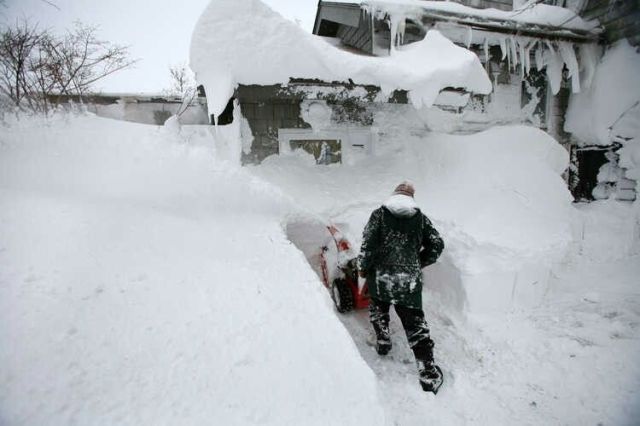Snowstorms are storms where large amounts of snow fall. Two inches of snow is enough to create serious disruptions to traffic and school transport . This is particularly true in places where snowfall is not typical but heavy accumulating snowfalls can occur. In places where snowfall is typical, such small snowfalls are rarely disruptive, because of effective snow and ice removal by municipalities, increased use of four-wheel drive and snow tires, and drivers being more used to winter conditions. Snowfalls in excess of 6 in are usually universally disruptive.
A severe snowstorm characterized by strong sustained winds of at least 56 km/h and lasting for a prolonged period of time—typically three hours or more is called a blizzard. A large number of severe snowstorms, some of which were blizzards, occurred in the United States during 1888 and 1947 as well as the early and mid-1990s.
Severe snowstorms could be quite dangerous. A 6 inch snow depth will make some unplowed roads impassable, and it is possible for cars to get stuck in the snow. Snow depth exceeding 12 in especially in southern or generally warm climates will cave the roofs of some homes and cause loss of electricity. Standing dead trees can also be brought down by the weight of the snow, especially if it is wet or very dense. Even a few inches of dry snow can form drifts many feet high under windy conditions.



 Download Google Chrome
Download Google Chrome Download Mozilla Firefox
Download Mozilla Firefox Download Opera
Download Opera